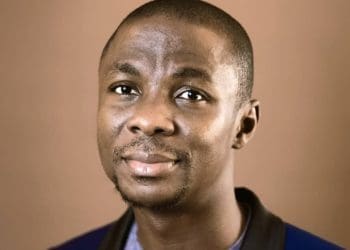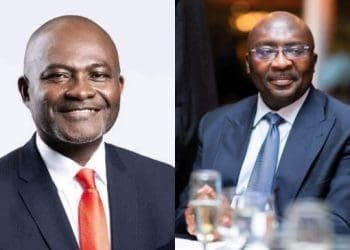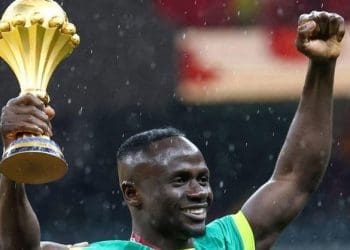Saturday, July 26, the breaking news also broke hearts and filled airwaves. Iconic Daddy Lumba was gone, and with him the best of popular music. Finger pointing for his exit brought into the dock Lumba’s own song ‘Akwanoma’, which foretells his destiny as a bird of the wilderness.
At 60, he has gone too soon. Yet ‘Akwanoma’ composed at 26, is a script Lumba’s life has fulfilled. Hear an excerpt, ‘I came to the world not to seek long life, but a good name.’ These are words of a sage.
The tragedy evokes memories of my first encounter with the legend.
Wednesday, 8th November 2017, Ministry of Education. A soft knock on my door mid-morning. Robert, my executive assistant, pokes his head in the doorway and says an august visitor was there to see me. Within seconds, the guest barges in, grinning from ear to ear. Daddy Lumba is in my office! ‘Lumba, I bet you have lost your way,’ I teased. ‘No, Prof, I came to say hello.’ Oh my God, the privilege to meet the living legend! ‘Where did I sleep last night?’ Lumba exploded in jitters as I struggled to adjust to reality.

He humbly walked to my desk wearing a white kaftan and his signature hair braid. I nearly screamed my pleasure, only to be reminded of my new role as minister. Music and its makers have the power to hypnotise, turning mature adults into babbling infants. At 52, the process of ageing had given up on Lumba, preserving teenage looks that give him access to the teeming youth. Our friendship started and continued through phone chats.
But Lumba transcends music; he is a complex blend of music, dance, theatre, and fashion: composite art personified. His appeal as a global star was evident when Prince Charles, now King of England, included Lumba on his personal playlist.
Elsewhere, Daddy Lumba, author of over 200 hit songs on 34 albums, would have received state acclaim at the prime of his life. He was once overheard saying, ‘if the White man spoke Twi, he would have admitted that Michael Jackson is no match for Daddy Lumba.’ A state award Lumba received late 2024 was perhaps too little, too late, in a country where awards investiture has become a market commodity.

Mid 1997, I sat at a maiden COSGA awards night, three seats away from President Rawlings, the Guest of Honour. The MC was Kwasi Kyei Darkwa (KKD), the finest. But that event triggered another sideshow when J. J. was asked to say a word and exhibit any musical skills left in him. Jerry complied, but invited his driver on stage to help him sing: ‘Hei Zamina Mina Mina Mina. Hei Zamina Mina.’
A great night of fun and highlife music. After three hours of joy and nostalgia, though, I went home disappointed. The great expectation that Daddy Lumba, then at 31, would be celebrated to mark his early rise to fame was shattered. A panel of COSGA judges had decided to see not Lumba, hear not Lumba, and hail not Lumba. Listen to my ‘write hand’ in Yao Graham’s Public Agenda, May 1997:
“Who told COSGA to give a song of the year award to a song that was NOT of the year. And give the composer of the year award to a composer who was not of the year; and the arranger of the year award to an arranger who was not of the year, but of yesteryear. And to give the best new artist award to a ‘new’ artist who was not new. It is indeed hard to tell what type of calendar hangs on the wall of COSGA.
It was unjust not to see any award for Daddy Lumba or Nana Acheampong, or Nat Brew, who are more ‘of the year’ than award recipients who ‘have a great future behind them.” That was my pen in 1997.
To Lumba, every twist in life’s journey deserves a poetic rendition, a witty saying that enables the pedestrian to own the song and, with it, tell his story: travel, love, tragedy, mischief, hypocrisy, rebellion. But Lumba also has midnight themes that are carefully padded to attract the young and old. Often times such songs are gleefully sung by the youth in hopes that parents would misinterpret the coded meaning of ‘aben woha’, or ‘nea adepa akohye.’ The youth indeed misread our confidential sources of delight.
One incident, however, gave a clue that the Lumba impact had tiptoed its way to official circles. In late 2016, the ‘Yentie Obiaa’ hit song almost brought down the roof at an official dinner at the Manhyia Palace, aptly conveying collective sentiments at the event.
Ghana’s President Mahama, defying prevailing odds, had gone ahead to successfully commission an airport lighting project at the Opposition stronghold, Kumasi. In a viral video leaked to social media, the dinner held to round off the event almost imploded when the live band purposefully played Lumba’s ‘Yentie Obiaa.’
Spontaneously, the President, His Royal Majesty, and guests together dashed to the dance floor merrily singing the refrain, ‘Yentie Obiaa’ in a collective celebration of presidential defiance that had yielded results. Daddy Lumba had virtually lured Ghana’s leadership into his fold, with a song that defined the moment, and compelled adults to relive playtime at school.
The country has been thrown into a state of mourning by the home call of a sage, global artist, poet, entertainer whose music has inspired names of suburbs, textile designs, hair styles, and popular culture.
In all this, though, expect among the chief mourners the New Patriotic Party for whom Lumba composed perhaps the most magnetic campaign song in contemporary history: ‘Na-na-na-na-na-na the winner,’ a virtual serenade for Nana Akufo-Addo, which mobilised the youth, and expedited the Ex-President’s 2016 victory.
Happily, the Lumba stature looms beyond partisan politics. Among the earliest to convey sympathies and condolences to the Lumba family were President John Mahama and several others in the ruling Government, and the opposition NPP.
Lumba’s exit is Ghana’s loss; a man who lived and died singing his destiny.
Akwanoma, Da Yie!
By Kwesi Yankah
kyankah@ashesi.edu.gh














